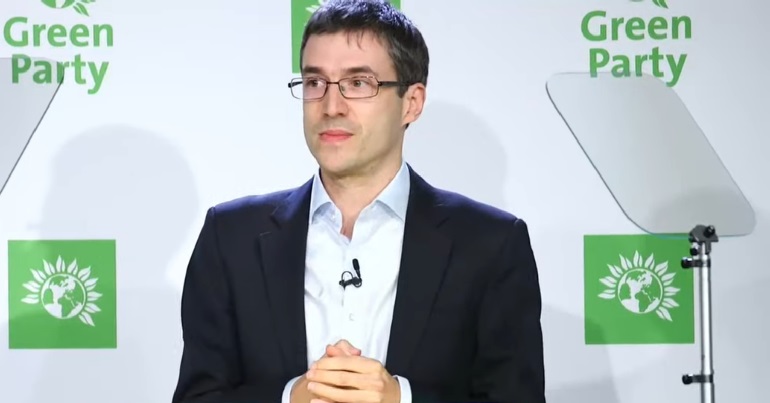Defending Health and Safety
I have a confession to make: I’m a big fan of health and safety. I’m not just saying that just to be contrary, or because I like everything the Tories don’t and vice versa – I genuinely think that it’s a good thing. Workers’ Memorial Day exists because of the thousands of people who have been killed or injured in industrial accidents. The number of deaths from industrial accidents in the UK is about a third of what it was in the early 1980s, and although it’s likely that part of the trend is due to a decline in some of the more dangerous types of work, such as mining, there are substantial decreases across all employment sectors – and that’s probably because the health and safety legislation first introduced in the mid 1970s was starting to have an effect.
When David Cameron says that he wants to reduce the “red tape” burden on businesses, what he means is that he doesn’t want your employer to have to meet the costs of looking after your safety at work. Rather than being a manifestation of the nanny state that tells ordinary working people they don’t have the sense to look after themselves, health and safety is their protection from bosses who would pressure them into unsafe working practices, or neglect maintenance, just to save a bit of money. Cameron’s comments on “ending health and safety culture” are a clear demonstration of where his loyalties lie, and that he doesn’t understand what it’s like to work anywhere more dangerous than an office.
Unlike Cameron, I’ve had some insight into what it’s like to work in places where health and safety really matter. The year after I graduated from university, I worked in an outdoor education centre that schools and youth groups used for residential trips where they could try activities like canoeing and abseiling. We had health and safety regulations coming out of our ears, but for a very good reason: twenty years ago, when centres like the one I worked in were less regulated, children died. Decent equipment and properly trained staff might be expensive, but they save lives and prevent serious injuries.
Critics of health and safety say that it is an insult to our collective intelligence, but there were two things that I saw during my year in outdoor education which made me question the nature of common sense. First of all, I discovered that a few of the men I worked with used to set fire to their own arses for fun. It wasn’t even for a bet; one day somebody thought it would be a laugh, and it kind of caught on and became this weird game called “flaming arseholes”. It’s probably just luck that nobody ended up in hospital or burned down the staff accommodation block, but when people realise that they can get away with doing something stupid and dangerous, they’ll keep on doing it until their luck changes.
Secondly, I realised that some of the things we think of as common sense are learned responses, and this can be shown up when people are in an unfamiliar environment, where their previous knowledge just doesn’t apply. A lot of the kids I met during my year in outdoor education came from Birmingham or Inner London, and for some it was the first time they’d ever been outside the city. They had no idea what risks to look out for in the countryside, so had to be taught that wild animals are best left alone, even when they’re small and harmless-looking, or that there are some places where swimming in the sea is really dangerous. Going into a new workplace can be a bit like that; it might be really obvious to someone who has worked there for years that you don’t touch that or stand there, and you can’t rely on the confused newbie to work it out for themselves.
If, as Cameron says, health and safety regulations cost jobs, I’d hate to see what those extra jobs in his deregulated utopia would be like. However, if working conditions become more dangerous, then at least it’ll open up opportunities for people on the dole to get into work by traditional route of the dead man’s shoes.




I used to work in a freezer plant… There was an area where you had to hold your breath to avoid getting a lungful of ammonia from a leak they were too cheap to fix, and the hardest night’s work we ever put in was cleaning the place up for an H&S inspection the next day. I have no doubt that without regulation, people would have been injured fairly regularly, and occasionally killed. Maintaining all that plant properly is bloody expensive.
Yes, I’m sure there are genuine examples of bad health and safety practices, but my line is that I am not generally in favour of illness and danger in the workplace.
Most silly HSE stories are in fact bullshit hse.gov.uk/myth/ Wish they’d kept doing this series which rubbishes so many stories. Here, for instance, is HSE on the whole conkers + safety goggles thing hse.gov.uk/myth/september…
much of the time, people hide behind H&S because they want to avoid something, or it’s insurers who charge loads or won’t insure due to risk, eg: at festivals, they often don’t allow campsite fires because they can’t get insurance for it, and you have to have insurance to get a licence for the festival.
Then people say it’s because of Health and Safety, which it is – but nothing to do with laws or regulations.
Actually, in my 6 years working as a techie at live events, I mostly found H&S stuff to be sensible and well applied – not always true mind, but the only example that springs to mind is “suicide sports” at Secret Garden Party – which was dangerous, but the risks were clear and assessible by those involved, and risks to bystanders minimal (and reducible to non-existent). But not allowed on h&s grounds. Other stuff that gets disallowed (or has to be in place) is more often down to insurance or licencing requirements than the Health and Safety Executive.
Particularly since the “voluntary guidelines” the government want for adventure centres are pretty much exactly what was in place when the Lyme Bay tragedy happened: http://www.independent.co.uk/news/uk/the-school-canoe-tragedy-canoe-instructors-were-not-qualified-teachers-no-official-checks-on-centres-offering-activity-holidays-1499567.html